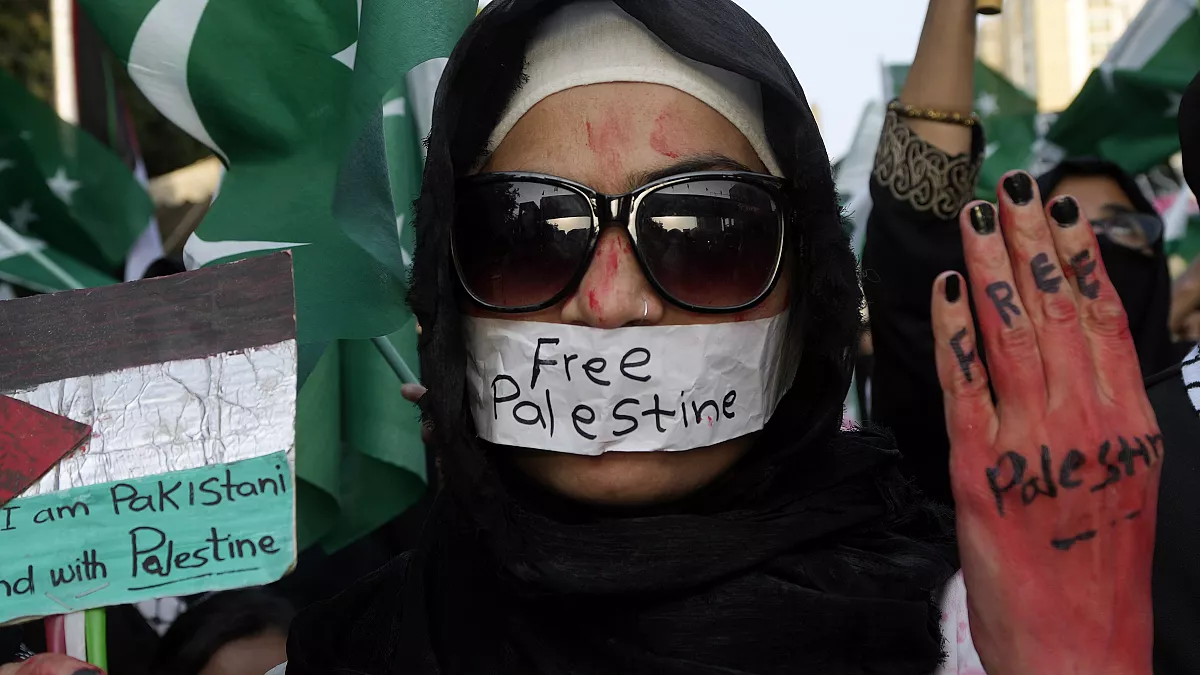
Bloggers denounced the closure of the accounts of Palestinian activists on the X (formerly twitter) social platform. They say this latest decision comes within a systematic campaign to silence the free voices who are defending the rights of the Palestinian people in the face of the Israeli occupation.
They pointed out that the accounts closed by the X platform, have played a prominent role in highlighting the suffering of the Palestinian people and transmitting the crimes of the Zionist occupation in Gaza to the world through social media platforms.
Bloggers confirmed that these accounts have come to represent a strong media front to face the Zionist narrative and convey the truth to the Arab and international public and make them aware of the tragedy of the Palestinian people, especially in the ongoing war on Gaza.
A Window on The World
Activist Adham Abu Salmiya said “for me, social media represents an important window onto the world, but it does not form the essence of human existence. There is no value to man if virtual space takes priority over the real world, where attitudes are made and achievements are realized.”
Abu Salmiya added to Quds Press, whose number of followers reached one million people before he was suspended said that “suspending my account on the X platform may hinder my media message for some time, but it will not weaken my commitment to conveying the truth and serving our central cause, Palestine.
My presence will remain effective in the field, and my continuous efforts towards awareness and human struggle for the benefit of our Arab nation are greater than any electronic platform. Success is not measured by the number of followers, but by the extent of the impact we make on our reality and the future of our generations,” he added.
Palestinian writer and analyst Ibrahim al-Madhoun said: “In an unfortunate development reflecting the extent of the influence of the Zionists on social media platforms, the X management closed my account, which exceeds 100,000 followers, despite the fact I did not violate any of the network’s standards, I did not publish photos or videos, but expressed my political views, reflecting my affiliation the just cause of the Palestinian people.”
‘Silence The Voices’
This step is “an extension of the continuous attempts to silence the voices that defend the rights of the Palestinians and seek to highlight the crimes of the occupation.
The closing of my X account is a serious indicator that this platform is losing its role as space open to all, as its management seems clearly biased towards the Israeli side in its handling of Palestinian content.
If X continues its policy of closing Palestinian accounts, it means it has abandoned its neutrality and have become a political tool serving the Zionist agenda thereby losing its credibility as a global platform that allows free expression.
I will officially message the X administration to reactivate my account, with the confirmation that I have not violated any of the network’s standards,” stressing “these practices will not discourage me from continuing my message, but will increase my insistence on communicating my voice and my cause to the world.
In light of these arbitrary measures, I decided to focus more on my alternative platform on Telegram, which has more than 6,000 subscribers, where I will continue to publish my opinions and positions with all freedom and transparency. In addition, I will continue to strengthen my presence on the other platforms such as Facebook, YouTube, and Tik Tok, despite the challenges facing me there as well.
The war on social media is a difficult and cruel battle, but we will not allow one platform or any other party to be a way to silence the voice of the Palestinian right,” he concluded.
The closure of these accounts generated much comment who showed solidarity with activists Abu Salmiyah, demanding that his account be restored.
In his support Palestinian activist Khalid Safi wrote on X that “Adham Abu Salmiya is one of the most powerful and influential accounts in the Arab region”.
Support came from Kuwaiti poet Ahmed Al-Kandari and Mauritanian thinker Muhammad Al-Shanqaiti who said “Professor Adham Abu Salmiya speaks truthfully in time of falsehood, and is a brave and brave man who carries the people of Gaza and Palestine.”
Bias
As for the Palestinian historian Khaled Al-Ashqar, he pointed out “the blockade is renewed on Palestinian content as the second year of the Al Aqsa Flood enters”, confirming that “these Western platforms are still biased towards the occupation narrative…”
Kuwaiti activist Khaled Al-Otaibi said that the account of my brother Adham Abu Salmiya on X was suspended as part of a systematic campaign to suppress the free Palestinian voice and the Arab narrative that cracks the truth and refutes the false Zionist narrative.








